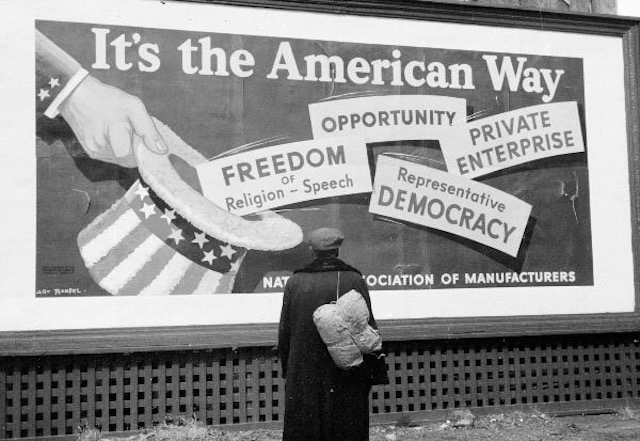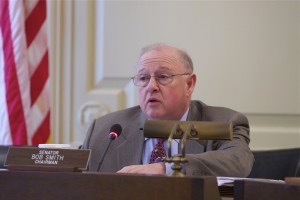RGGI Is A Political Cover – Money Laundering Operation
Honest Graft Among Friends
Legislative earmarks, Gov.’s awards, DEP grants, and scientific & media support
So let us not talk falsely now
The hour is getting late. ~~~ All Along The Watchtower, Bob DylanMultivariate analysis indicates that economic elites and organised groups representing business interests have substantial independent impacts on US government policy, while average citizens and mass-based interest groups have little or no independent influence. ~~~ Princeton Professor Martin Gilens – Testing Theories of American Politics: Elites, Interest Groups, and Average Citizens
Follow the timing of events closely. Follow the money, the press release, the people, the regulatory proposals, and the science.
First, on December 10, 2018, DEP Commissioner McCabe announced the recipients of the ANNUAL GOVERNOR’S ENVIRONMENTAL EXCELLENCE AWARDS, which included the New Jersey Climate Adaptation Alliance, a group:
Facilitated by the Rutgers Climate Institute and Rutgers University’s Edward J. Bloustein School of Planning and Public Policy … The alliance of more than 45 organizations representing public, private, non-governmental and academic sectors has also undertaken research and policy analysis to assess climate impacts in New Jersey as well as outlining policy and other actions that can address sector-based impacts.
We’ve previously written about former high level DEP employees that now work at Rutgers and authored the Alliance “policy” Report cited by DEP in the award press release.
Second, on December 17, 2018, the Murphy DEP proposed new regulations to rejoin RGGI (read Gov. Murphy’s press release, which provides links to the DEP rule proposals).
The Gov.’s self congratulatory press release left out a key point, found on page 91 of the DEP proposal:
The CO2 emissions from New Jersey’s CO2 budget units constitute approximately 16.5 percent of the State’s annual greenhouse gas emissions.
Get that? RGGI applies to just 16.5% of total emissions – that makes RGGI small change – and it doesn’t even come close to working as advertized in terms of reducing emissions.
I don’t want to get diverted and go into the weeds here, but I must note that among other key facts, the Gov. also failed to mentioned that: 1) the so called 2020 “cap” on emissions – 18.6 million tons – is HIGHER than current GHG emissions; 2) that in a letter, environment groups recommended a 2020 “cap” of just 12-13 million tons; and 3) that the “cap” never goes lower than 12.6 million tons, thereby locking in carbon emissions that make “decarbonization” of the electric sector and the Gov.’s own goal of 100% renewables impossible.
Getting back to the story here – we note that the DEP RGGI rule proposal cites the work of the Rutgers Climate Alliance, the group that just received the Gov.’s award:
The New Jersey Climate Adaptation Alliance, a group facilitated by Rutgers University, prepared a series of working briefs to provide background information on projected climate impacts for six major sectors in New Jersey, including agriculture. (DEP proposal at p. 106)
So, just days after the Gov. and Tammy issued an award to Rutgers’ Alliance, they cited their work in the scientific basis for the RGGI rule proposal.
Smells like scientific corruption and a conflict of interest to me –
Imagine the outrage if Trump or Christie funded a “science” Report, written by a former staffer, then issued that Group an award, and then cited the Report in support of their policy views.
Or, at best, lazy science and old fashioned political games among a small circle of friends.
Third, the Gov. awards also went to American Littoral Society, who:
With funding from the DEP and several governmental and community partners, the American Littoral Society in 2017 designed and built a series of nonpoint source reduction and green infrastructure projects
Got that? DEP funds ALS, then issues ALS an award for the work DEP funded! On top of that, the Christie DEP outsourced this grant work to ALS as a means of avoiding complying with the Clean Water Act and enforcing a TMDL in Barnegat Bay!!!
So why the hell is the Murphy DEP awarding Christie DEP outsourcing and CWA TMDL compliance evasion?
DEP got a twofer – the ALS work DEP funded was described by the slogan “green infrastructure” – that’s a concept that not so coincidentally is at the heart of weak DEP’s recent stormwater rule proposal.
Get that? DEP issues an award to the regulatory outsourcing of Christie DEP to ALS, a friend that is sure to support or not criticize the horrible Murphy DEP stormwater regulation.
But that’s not all – ALS is slated to receive RGGI money too.
As I wrote, explaining the way that DEP funds their friends (and amazingly, Jeanne Herb, author of the Rutgers Report, was involved in the RGGI legislative earmark):
Specifically, when the RGGI legislation was undergoing legislative deliberation, most of the environmental community was working hard and very publicly to make RGGI as strong as possible and to prevent the bill from being hijacked by Senator Sweeney on behalf of big oil (which it ultimately was, resulting in editorial boards and most NJ environmental groups to OPPOSE the final version of RGGI, see: Lame Global Warming Bill Goes to Governor.)
But two groups, NJ Audubon and American Littoral Society were working quietly behind the scenes NOT on strengthening the RGGI bill, but on seeking special amendments to essentially earmark RGGI revenues to their organizations and pet projects.
Specifically, NJA and ALS met quietly with NJ DEP Director of Policy & Planning Jeanne Herb to secure earmarks of RGGI funds for carbon sequestration.
DEP supported these amendments and deceptively conveyed them to the Legislature as DEP amendments – thus disguising the special interests NJA and ALS behind them and essentially laundering special interest earmarks.
Here they are: (see Section 7.b.(4))
(4) Ten percent [of RGGI revenues] shall be allocated to the department to support programs that enhance the stewardship and restoration of the State’s forests and tidal marshes that provide important opportunities to sequester or reduce greenhouse gases.
NJ Audubon was the ONLY group in NJ doing “forest stewardship and restoration”.
ALS was the only group working on “tidal marsh” restoration.
This 10% was an earmark to those groups.
Get that?
Herb was involved in the ALS earmark; the DEP sham GWRA; the DEP sham regulation – deregulation of GHG emissions; the Rutgers Report and the Murphy DEP award and RGGI rule.
It’s all just honest graft among friends: legislative earmarks, Gov.’s awards, DEP grants, and scientific support.
End Note: Mike Catania, the heavy set well fed man on left in the photo above, not only works with Rutgers Climate Alliance, he was a former DEP Deputy Commissioner and now doles out tobacco blood money as head of the Duke Foundation – to groups like ALS and the Rutgers Climate Alliance. It’s all good among friends, right?. Or cronies?
Can’t make this stuff up.


